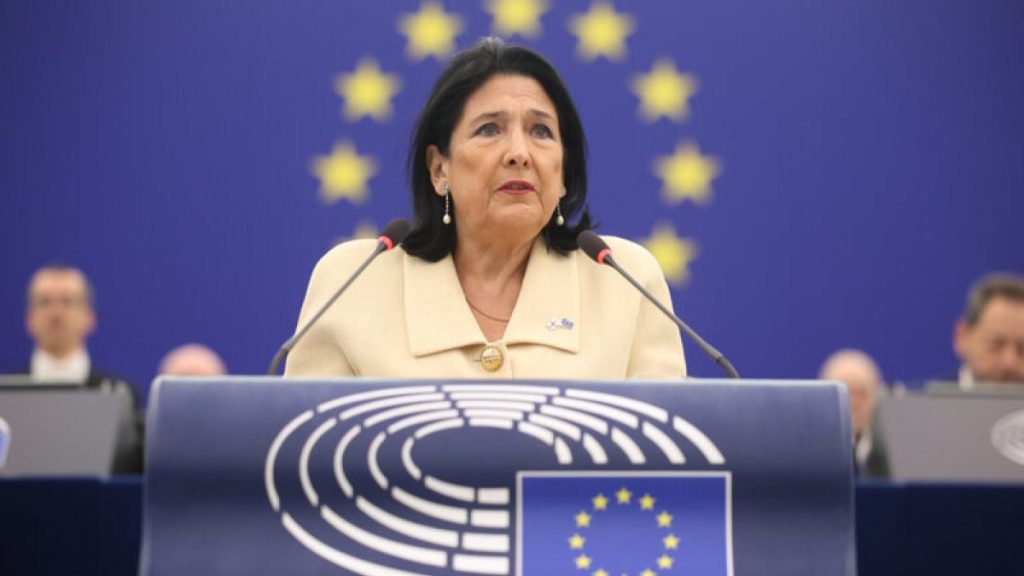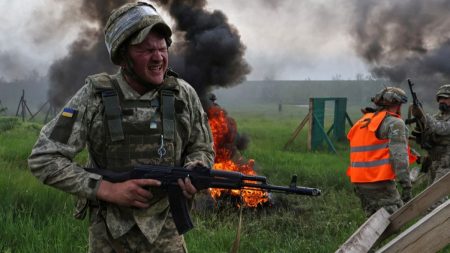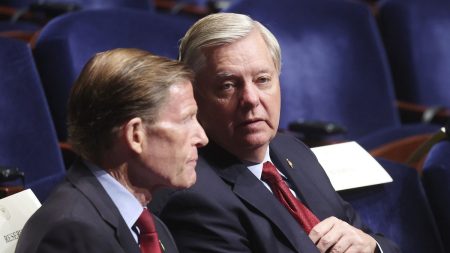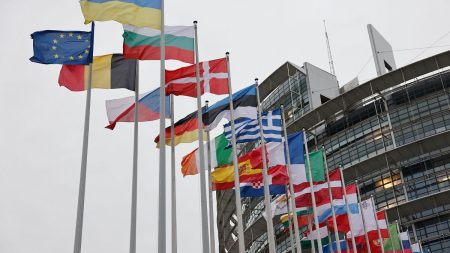Salomé Zourabichvili, the outgoing president of Georgia, has launched a fervent appeal to the European Union to intervene in the escalating political crisis engulfing her nation. In an interview with Euronews and a subsequent address to the European Parliament, Zourabichvili accused Russia of orchestrating a “new form of invasion” through manipulating the October 26th parliamentary elections, resulting in an illegitimate government. She vehemently contests the validity of the subsequent presidential election, refusing to recognize Mikheil Kavelashvili as her successor and vowing to remain in office past her official end date of December 29th. Zourabichvili insists her legitimacy stems from the Georgian people and not from the ruling party, Georgian Dream, which she accuses of complicity in the alleged Russian interference.
Zourabichvili’s central argument revolves around the claim that Georgian Dream’s electoral victory, securing 53% of the vote, was artificially inflated through a sophisticated campaign of Russian meddling. She alleges various forms of electoral malpractice, including ballot stuffing facilitated by new electronic voting machines, voter intimidation, vote-buying, and a massive influx of illicit funds into the country during the election period. Zourabichvili also points to a pre-election law targeting non-governmental organizations, which she claims hampered independent election monitoring efforts. This, coupled with a pervasive Russian propaganda campaign, created an uneven playing field that skewed the results in Georgian Dream’s favor. Zourabichvili estimates Georgian Dream’s actual support to be significantly lower, between 30% and 35%, and cites the obstacles placed before the Georgian diaspora, hindering their ability to vote, as further evidence of manipulation.
The outgoing president’s concerns extend beyond mere electoral irregularities. She describes Russia’s actions as a “hybrid invasion,” employing proxies and fostering an authoritarian government to exert control over Georgia. Zourabichvili argues that the ruling party’s rhetoric of pursuing EU membership is a deceptive façade masking their true intentions of aligning with Russia, effectively creating a “Russian-type state” within Georgia’s borders. While Georgian Dream has not explicitly renounced its EU aspirations, its recent decision to suspend membership talks until 2028 has fueled widespread protests and sparked violent clashes throughout the country.
Zourabichvili criticizes the EU’s response to the crisis as “slow to wake up and slow to react,” urging a more decisive intervention to prevent the further erosion of democracy in Georgia. She calls for a departure from “business as usual” with the Georgian government, arguing that continued engagement would legitimize an illegitimate regime. While the European Parliament has called for new elections, Zourabichvili expresses frustration with the lack of consensus among EU member states on imposing more substantial sanctions against Georgian officials, reportedly blocked by Hungary and Slovakia. She stresses the strategic importance of the Caucasus region for the EU and warns against allowing individual member states to obstruct a unified and effective response to the crisis.
Zourabichvili, resolute in her commitment to Georgia, rejects the possibility of exile, emphasizing her intention to remain in the country and continue her fight for democracy alongside the Georgian people. She urges the EU to support her efforts from within Georgia, recognizing her as the legitimate representative of the Georgian people’s will. Her defiance in the face of mounting political pressure underscores the depth of the crisis and highlights the urgent need for international action to safeguard Georgia’s democratic future. The standoff between Zourabichvili and the incoming government poses a significant challenge to Georgia’s stability and its aspirations for closer ties with the West.
The situation in Georgia represents a critical test for the EU’s commitment to democratic values and its ability to counter Russian influence in its eastern neighborhood. Zourabichvili’s impassioned pleas for support underscore the precariousness of Georgia’s democratic institutions and the urgent need for a coordinated international response to prevent the country from sliding further into authoritarianism. The implications of the ongoing crisis extend beyond Georgia’s borders, serving as a stark reminder of the challenges facing democracies in the region and the importance of upholding the rule of law and protecting the integrity of electoral processes. The world watches as Georgia grapples with its political future, the outcome of which will have profound consequences for the region and beyond.










